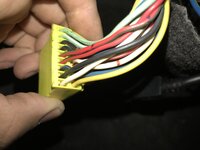alIan
20+ Year Contributor
- 164
- 0
- Oct 17, 2002
-
Thousand_Oaks_CA_(near_LA)
I narrowed down my idle surge to my ISC , for sure (put in an old non-functional ISC at fully closed step, and surge went away completely). I have two questions:
1) How can i check the wiring harness to the ISC to make sure it is fully functional? The coils seem to all check out just fine in the ISC motor... I am sure the wiring harness is at least PARTIALLY functional, since i can hear vibration and see movement in the ISC when the key is turned from off to on (as the vfaq says).
2) where can i buy a functional ISC for a decent price (i hate satan) if it turns out that is not the harness? I'm sure some of you have found better deals than the dealer... ($349 here in thousand oaks, CA).
Thanks
Ian
1) How can i check the wiring harness to the ISC to make sure it is fully functional? The coils seem to all check out just fine in the ISC motor... I am sure the wiring harness is at least PARTIALLY functional, since i can hear vibration and see movement in the ISC when the key is turned from off to on (as the vfaq says).
2) where can i buy a functional ISC for a decent price (i hate satan) if it turns out that is not the harness? I'm sure some of you have found better deals than the dealer... ($349 here in thousand oaks, CA).
Thanks
Ian




 .
.
 . Regardless, I get my multimeter tomorrow and I'll test the harness for continuity.
. Regardless, I get my multimeter tomorrow and I'll test the harness for continuity.













